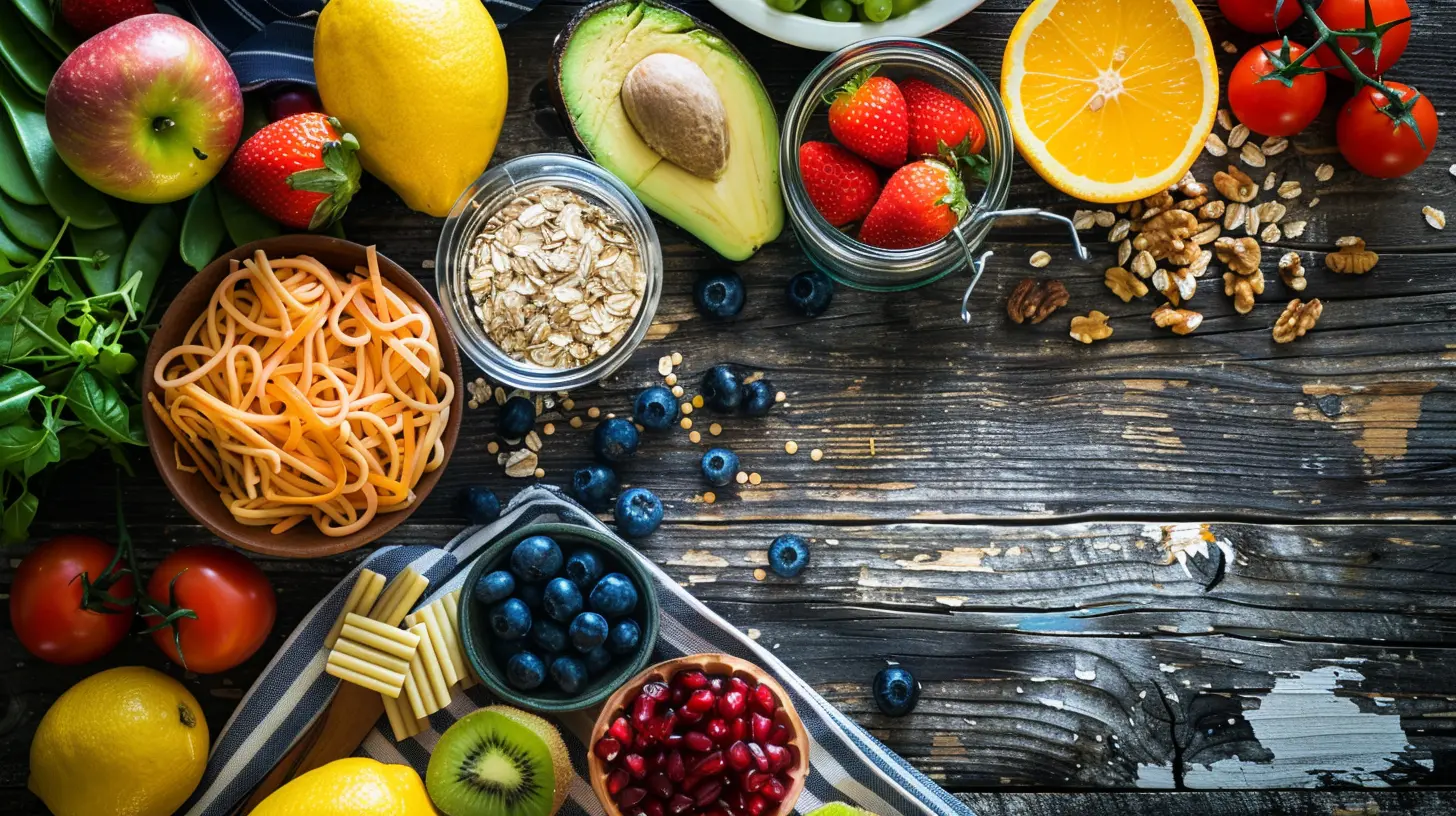How to Properly Refuel After an Endurance Workout
13 August 2025
Endurance workouts push your body to the limit, draining your energy reserves and breaking down muscle tissue. To recover and perform optimally in your next session, you must refuel correctly. But what exactly should you eat and drink? How soon after your workout should you refuel? Let's break it down in a way that’s simple and practical.

Why Refueling Matters
Think of your body like a car. After a long road trip, your gas tank is nearly empty, and your engine has been working hard. Just as a car needs fuel and maintenance, your body needs proper nutrition and hydration to recover and keep performing at its best.When you exercise for an extended period, especially in endurance activities like running, cycling, or swimming, your muscles deplete glycogen (stored energy) and break down protein. If you don’t replace these nutrients, your recovery slows, and you risk fatigue, soreness, and even injury.

The Golden Rule: Refuel Within 30-60 Minutes
Timing is everything. Your body is most efficient at absorbing nutrients and replenishing glycogen stores within the first 30-60 minutes after an endurance session. This window, often called the “anabolic window,” allows your muscles to soak up nutrients like a sponge, promoting faster recovery and reducing soreness.So, don’t wait too long—get some quality fuel in as soon as possible after your workout.

The Three Key Nutrients for Recovery
Your post-workout meal should focus on three essential components:1. Carbohydrates: Rebuilding Energy Stores
During endurance workouts, your body burns through glycogen, the primary fuel source for your muscles. To restore these depleted energy reserves, carbs should be a priority.Best Sources of Post-Workout Carbs:
- Whole grains (brown rice, quinoa, whole wheat bread)- Starchy vegetables (sweet potatoes, squash)
- Fruits (bananas, berries, oranges)
- Oats
- Low-fat dairy (Greek yogurt, milk)
Aim for 0.5 to 0.7 grams of carbohydrates per pound of body weight within the first hour post-exercise. For example, if you weigh 150 pounds, aim for 75-105 grams of carbohydrates.
2. Protein: Repair and Build Muscle
Endurance workouts cause muscle breakdown. To rebuild and strengthen, your body needs high-quality protein. This nutrient helps repair tissues and reduces muscle soreness.Best Protein Sources for Recovery:
- Lean meats (chicken, turkey, fish)- Eggs
- Plant-based proteins (tofu, lentils, chickpeas)
- Dairy (Greek yogurt, cottage cheese)
- Protein powders (whey, pea, or soy protein)
A good rule of thumb is to consume 0.14 to 0.23 grams of protein per pound of body weight shortly after your workout. This translates to about 20-30 grams for most people.
3. Healthy Fats: Supporting Recovery
While carbs and protein take center stage, healthy fats shouldn’t be ignored. They help reduce inflammation and support joint health. However, fats slow down digestion, so it’s best to consume them a little later rather than immediately after exercise.Best Healthy Fats:
- Avocados- Nuts and seeds (almonds, chia seeds, flaxseeds)
- Olive oil
- Fatty fish (salmon, sardines)

Hydration: Replenishing Lost Fluids
You sweat a lot during endurance workouts, losing water and essential electrolytes. Rehydrating properly is just as important as eating the right foods.Water Vs. Electrolytes: What Should You Drink?
- If your workout lasted under an hour, plain water is usually enough.- If your workout was longer or particularly intense, replenish electrolytes with a sports drink, coconut water, or electrolyte tablets.
How Much Should You Drink?
A general guideline is to drink 16-24 ounces of water for every pound of body weight lost during exercise. If you don’t weigh yourself before and after workouts, a good habit is to drink steadily throughout the day and monitor your urine color—it should be light yellow.Sample Post-Workout Meals and Snacks
Want some practical meal ideas? Here are great post-workout options that hit the right balance of carbs, protein, and fats:Quick and Easy Snacks (If You’re in a Hurry):
- A banana with peanut butter- Greek yogurt with berries and honey
- A smoothie with protein powder, banana, and almond milk
- Whole grain toast with avocado and boiled eggs
Full Meal Ideas (For Deeper Recovery):
- Grilled chicken with quinoa and roasted vegetables- Salmon with sweet potatoes and steamed spinach
- Scrambled eggs with whole wheat toast and avocado
- A hearty bowl of oatmeal with nuts and dried fruits
Common Mistakes to Avoid
Even seasoned athletes make mistakes when it comes to refueling. Here are some pitfalls to watch out for:1. Skipping the Post-Workout Meal
Exhausted after your session? It’s tempting to crash on the couch, but delaying refueling can slow recovery and lead to muscle fatigue. Even if you’re not hungry, opt for at least a small snack.2. Relying Too Much on Processed Foods
Grabbing a protein bar or sports drink might be convenient, but whole foods are always the better choice. Processed snacks often contain added sugars and artificial ingredients that won’t fuel your body as effectively.3. Not Drinking Enough Water
Dehydration can sneak up on you, leading to headaches, dizziness, and prolonged fatigue. Keep a water bottle handy and sip regularly after your workout.4. Forgetting Electrolytes After Sweating Heavily
If you've had a particularly sweaty session, plain water may not be enough. Make sure to replenish electrolytes (sodium, potassium, magnesium) with foods like bananas, coconut water, or a light sports drink.Bonus: Supplements for Enhanced Recovery
While whole foods should be your primary source of nutrients, certain supplements can assist in recovery:- BCAAs (Branched-Chain Amino Acids): Help reduce muscle soreness and speed up repair.
- Creatine: Supports muscle recovery and improves endurance performance.
- Omega-3 Fatty Acids: Reduce inflammation and support joint health.
- Electrolyte Powders: Help restore balance if you’ve lost a lot of sweat.
Final Thoughts
Refueling after an endurance workout isn’t just about eating anything in sight—it’s about choosing the right balance of carbs, protein, and fats to help your body recover effectively. Timing is crucial, with the first 30-60 minutes being the prime window for replenishment. Hydration is equally important; don’t forget to sip on water and restore lost electrolytes.Get into the habit of refueling properly, and you’ll notice improved performance, faster recovery, and less muscle soreness. Your body will thank you for it!
all images in this post were generated using AI tools
Category:
Post Workout RecoveryAuthor:

Holly Ellison
Discussion
rate this article
1 comments
Brigitte McCarthy
Refueling after an endurance workout is like recharging your phone—ignore it, and you’ll be left with a low battery and a grumpy, sluggish attitude! Snack smart!
September 1, 2025 at 3:18 AM

Holly Ellison
Absolutely! Just like a phone needs charging, our bodies need the right fuel post-workout to recover and perform at their best. Great analogy!


